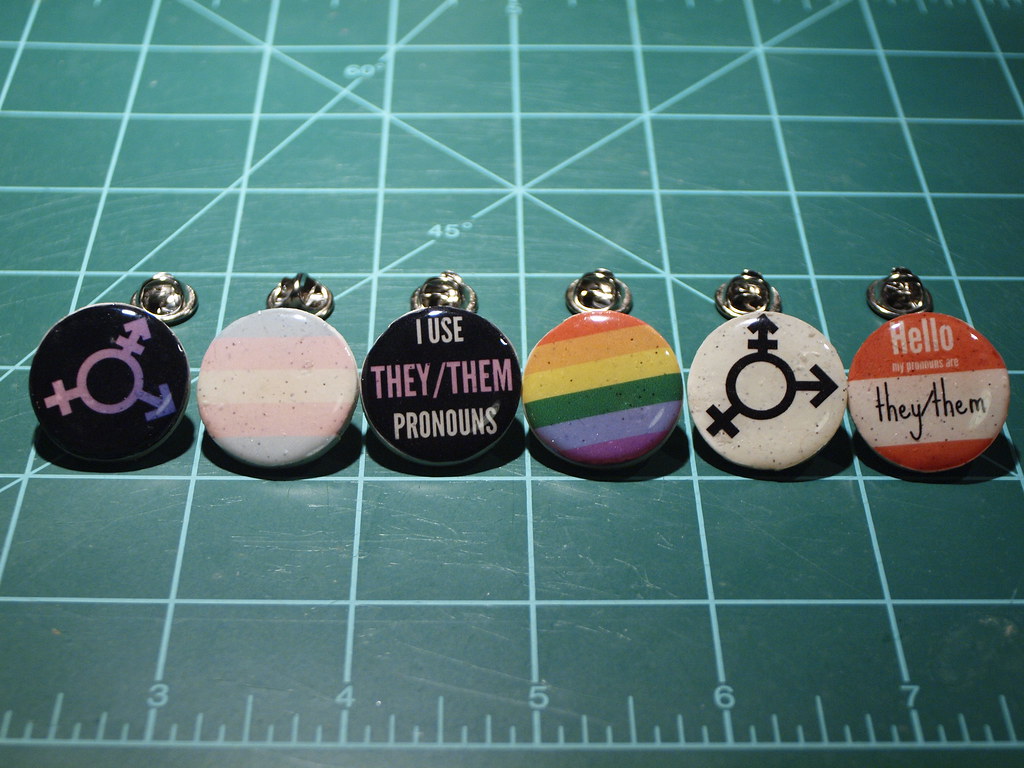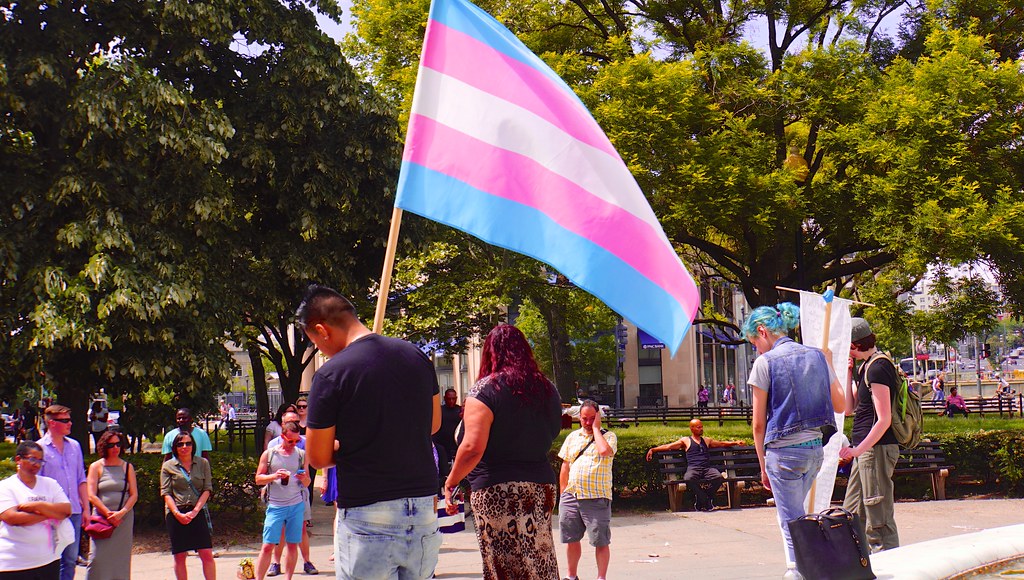I use an LGBTQ-friendly doctor’s office. They even provide trans-specific medical care, including prescribing hormones for trans men and women. Their website says, “We strive to provide judgement-free, affirming care that allows our patients to live healthy, authentic lives.” If anyone understands how important it is to address patients appropriately, it’s my doctor’s office.
But even the most gender-affirming medical practice can fall short of providing quality care to all its patients because they can’t overcome the fact that health insurance forces non-binary people to lie about their gender to maintain coverage.

Here’s What Happened
I recently made an appointment for some routine bloodwork. Shortly after I hung up the phone with the receptionist, I received an email that directed me to download an app to use to receive messages and results.
“Sure, whatever,” I thought. I downloaded the app to my phone. When I logged in for the first time, I saw the disheartening information across the top:
Ruth Carter, 43, Female
I was instantly hit with a gut-punch of disappointment.
I spent the rest of the day feeling frustrated and dejected, once again reminded that I live in a binary-centric society, that often doesn’t acknowledge that I exist.
The System is Broken
I assume the app is connected to my doctor’s office, which is connected to my health insurance, which says I’m female. (Grrr…) I would not be surprised if the developers who created the app have no idea that non-binary people are being discriminated against.
Hang on. Let me go send them an email.
We’ll see if I get a response.
I get it. Most people are cisgender. Their genitals match their gender from birth. Even trans men and women are having an easier time updating all their records to accurately state their gender.
Non-binary people make up only 2% of the U.S. population. Two percent doesn’t sound like a lot, but it equates to over 1.2 million people.
Until the Social Security Administration adds the non-binary gender option, health insurance plans will continue to exclude us along with software, systems, and policies for designed to support the practice of medicine.
Even if there’s nothing that can be done to change my gender in the app from what’s on my health insurance, it would have been nice, when my doctor’s office sent me the email inviting me to download the app, if they included a note like:
Hey, we know you’re non-binary. However, this app can only use the gender specified on your health insurance. We want to give you a heads up that that’s what you’re going to see every time you log on to the app, and we’re sorry.

Going to the Appointment
The night before my appointment, I was ready to walk in, be polite but short with everyone, stick my arm out, and try to get through it as fast as possible. Thankfully (for all of us), I mellowed a bit overnight and was in a better mood by morning.
With my dog in tow (yes, Lucy Jane is an emotional support dog who goes where I go), I went to the appointment, and the staff was lovely as always – friendly and thorough, and they didn’t give me a hard time when I said I don’t get on scales.
I mentioned how the app misgenders people like me, and the nurse agreed it was so frustrating, especially given the type of practice they have. That was the right answer. She did not make a single excuse or try to downplay the issue.
Maybe it’s Not So Bad
After my appointment, I began to wonder if I over-reacted about the app misgendering me. I was especially happy because my blood pressure is 98/62 and my defective heart (born with a PFO) is still pumping perfectly.
The next day, I received a message asking me to provide feedback on my appointment. I clicked on the link, and it took me to the app where I saw it again:
Ruth Carter, 43, Female
Ugh. I immediately felt like shit.
When I filled out the survey, I told them that I’m less likely to refer people to my doctor’s office because I feel like shit every time I open the app and it misgenders me. As a non-binary person, it matters that I’m perceived and addressed as the person I am. (I’m sure that’s true for everyone.) Maybe it’s even more important for non-binary people since we’re regularly excluded and/or misgendered by so many people, systems, and institutions.







